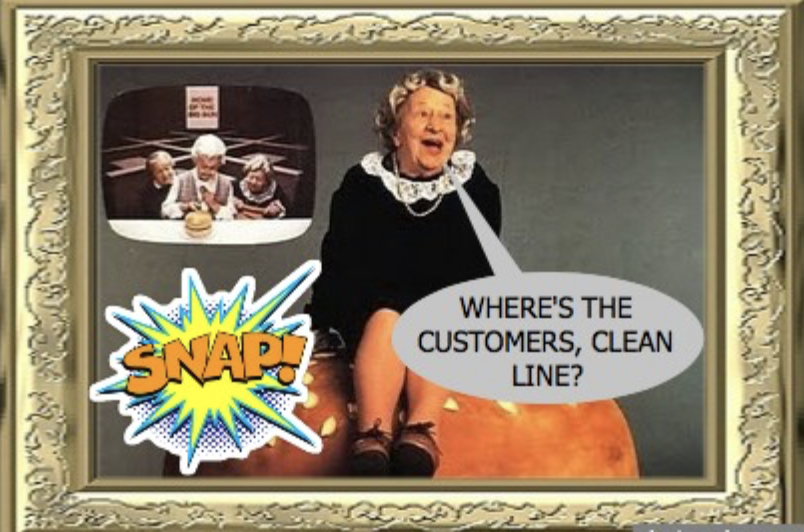Except what if the seller wants to force the purchase of its product or service because it sees an opportunity to make a lot of money if someone buys the product or service? Then it's a "syndrome" that must be cured through government intervention. That's absurd. Why don't we call it what it is... government-facilitated corporate greed?
"Missing buyer syndrome" is the bastard child of greedy corporations who want to make a bundle of money building new wind farms in the Midwest and huge new transmission lines to move the electricity generated to population centers.
The proposed Chokecherry Sierra Madre wind energy project could face challenges selling power in the desert southwest, officials told lawmakers in Casper last week.
The energy generated from the proposed 1,000-turbine site will be carried along a high power transmission line to California and the desert southwest.
California, however, is being difficult.
“We have a huge issue in California in that Californians would like to keep all of the development and buy all of their power from within their borders,” she said.
“We call it the missing buyer syndrome. The need is still there … we believe the market is there, but we are right now caught in a limbo.”
And here's another "missing buyer" for a greedy company that also found there was no demand for its service.
Clean Line Energy Partners, a Houston-based company that proposes to bring wind-generated power from Oklahoma and Texas to the Southeast along a $2.5 billion transmission line, says it could deliver power to TVA at less than 2 cents per kilowatt-hour.
But the utility has yet to commit to buying any of the 3,500 megawatts of wind-generated power Clean Line Energy will bring to the western edge of TVA's territory along its 720-mile transmission line from near Diamond, Okla. TVA said it doesn't need more power generation because of the stagnant demand for electricity in its seven-state region, and Johnson said TVA still would have to maintain or build other generation capacity to make up for the Clean Line energy when the wind doesn't blow.
"The price [from Clean Line Power], in and of itself, is a good price for wind," Johnson said. "But it actually costs us a lot more to import it and to make sure we have gas plants running or capable of running in case the wind doesn't show up."
Johnson estimates having the additional capacity to make up for when the wind doesn't blow or the sun doesn't shine typically adds at least 2 cents per kilowatt-hour to the quoted price of such renewable energy.
"At the moment, we have yet to conclude that [buying power from Clean Line Energy] is the right fit for what we are doing," he said.
"But I am mostly pro consumer, so we want what is the best price, the most reliable and the cleanest power for the consumer," he said. "Given our demand projections, we actually don't need any additional generating capacity at this time."
The Trump administration could help by pushing for an infrastructure package that would see the government “buying down a portion of the capacity” on big transmission projects so they can enter construction more quickly, or perhaps through an investment tax credit, Skelly suggests.
“All the ideas come down to a temporary underwriting of the project so you can get these things over the top, or some sort of tax mechanism.”
The Anschutz Corp. wants state governments to force "missing buyers" to purchase its product and service through legal mandates. It's all the same corporate greed looking for a government bailout for bad investments in renewable energy and electric transmission.
While these investors thought they saw a financial opportunity to use government tax credits to build something that's only needed through forced mandates, their gamble has not paid off. The government mandates are shifting and there's a new call to keep energy local. While the industrial wind industry thought it could exploit windy states to produce energy for export, the target importing states have a greed of their own to keep their energy dollars in state. This creates the mythical "missing customer."
If a state can choose between local economic development and sending those same dollars out of state to develop the economy elsewhere, the choice is simple. But what about those states that think they can develop their own economy becoming an exporter? They're selling themselves short. Instead of becoming an industrial wasteland in exchange for a few jobs and tax dollars, those states should be marketing themselves as a cheap energy mecca. Instead of exporting energy, perhaps they should try importing energy-intensive businesses?
And what about all those "fly over" states caught between states that want to export renewable energy and their "missing customers?" They're getting nothing in the deal and they're not going along with it.
Dozens of developers are competing to offer Massachusetts the best price for long-term contracts to supply clean energy to hundreds of thousands of homes. But many of the projects face a challenge: convincing residents of northern New England that it's in their interest to host the Bay State's extension cord.
Remote renewables are dead. Stop throwing good money after bad. Local renewables are on the rise. Quit wasting the remaining years of the production tax credit on bad ideas. Here's the next great thing:
Offshore wind is still a relatively costly technology, but here's one advantage: You can build ocean-based windmills pretty close to the demand centers, and avoid all those long transmission lines.
Instead of trying to beat everyone into submission, perhaps you should offer a product or service that people like, want, and need? That would turn your "missing customer" into "eager customer." Unless you just really like swimming upstream, against the current. There are smarter and easier ways to make money. Some days I wonder how you rich people got that way in the first place...

 RSS Feed
RSS Feed